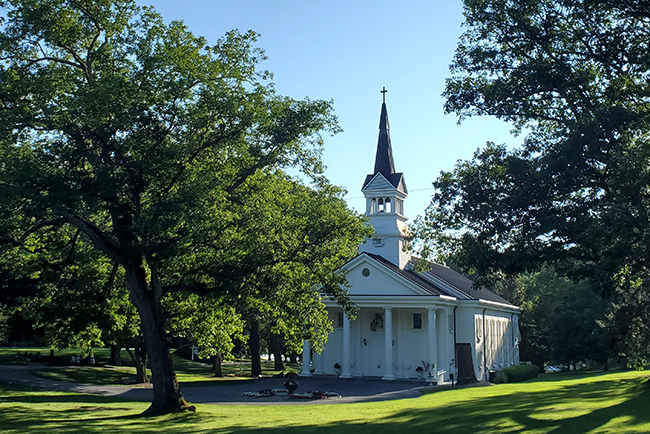
The State of Theology offers a compelling case for the value of church attendance in helping people grow in their knowledge of God.
By Daniel Price
When I attended college, my professors encouraged their students to attend class. There were professors who went so far as to say it was impossible to pass the course without attending the classes. Other professors presented unique material during class. The most extreme professors provided special exam instructions and solutions to help those who took the time to attend. This was valuable to those who came to class. In many classes, there were often clear lines in performance between those who attended and those who did not.
For the Christian, a similar expression could be, “Go to church if you want to know God more.” The results from the 2022 State of Theology study by Ligonier Ministries and Lifeway Research provide evidence that more frequent church attendance leads people to have different perspectives on God and a greater understanding of Him.
How often do Americans attend worship services?

Many sources, including Pew Research, have shown a regular decline in church or worship attendance among Americans. The State of Theology survey revealed similar numbers, as slightly more than half (51%) of Americans said they rarely or never attend a worship service. There is also a large contingent, 34%, who attend at least about once a week.
Church attendance and evangelical beliefs
The respondents were divided into five categories based on their responses to four evangelical statements. There are clear differences in responses to these statements based on church attendance. More than 2 in 5 of those who attend most frequently have complete evangelical beliefs (42%), and the same percentage have high evangelical beliefs (42%). This stands in stark contrast to the 1 in 10 (9%) of those who rarely or never attend and have complete evangelical beliefs.
On average, a person who attends services at least about once a week is 2.73 times more likely to have complete evangelical beliefs than a person who attends once or twice a month. Click To TweetWhile beliefs likely play a role in driving attendance, it would be naïve to believe attendance is not helping shape their beliefs. The more frequently someone attends church, the more likely their views and thoughts on Christianity will conform to the messages they hear and the people with whom they interact.

On average, a person who attends services at least about once a week is 2.73 times more likely to have complete evangelical beliefs than a person who attends once or twice a month. The odds ratio increases to 4.23 when compared to those who attend only on religious holidays and to 5.94 among those who rarely or never attend. This powerfully illustrates the impact frequent church attendance has on an individual’s beliefs.
| Comparison Groups | Odds Ratio Estimate |
| Attend at least about once a week v. Once or twice a month | 2.73 |
| Attend at least about once a week v. Only on religious holidays | 4.23 |
| Attend at least about once a week v. Rarely or never | 5.94 |
| Attend once or twice a month v. Only on religious holidays | 1.55 |
| Attend once or twice a month v. Rarely or never | 2.18 |
| Attend only on religious holidays v. Rarely or never | 1.40 |
Church attendance and biblical beliefs

The State of Theology survey consists of 31 statements about several aspects of biblical theology. Based on their individual responses, each person earned a score indicating their level of biblical beliefs. Each score corresponds to a letter grade. According to this grading system, those who attend more frequently are more likely to receive an A or B than those who attend less often.
This is a compelling case for the value of church attendance with regards to biblical theology. It is certainly possible increased attendance is an outcome of increased biblical knowledge. But the more intuitive and likely explanation is people who attend church more often are increasing their knowledge by doing so. These individuals are developing strong interpersonal relationships with other believers which leads to more interest in continuing attendance. No matter which way you look at the results, it seems my professors were right in encouraging attendance to increase knowledge.
For permission to republish this article, contact Marissa Postell Sullivan.
Daniel Price
Daniel is a statistician for Lifeway Research.












